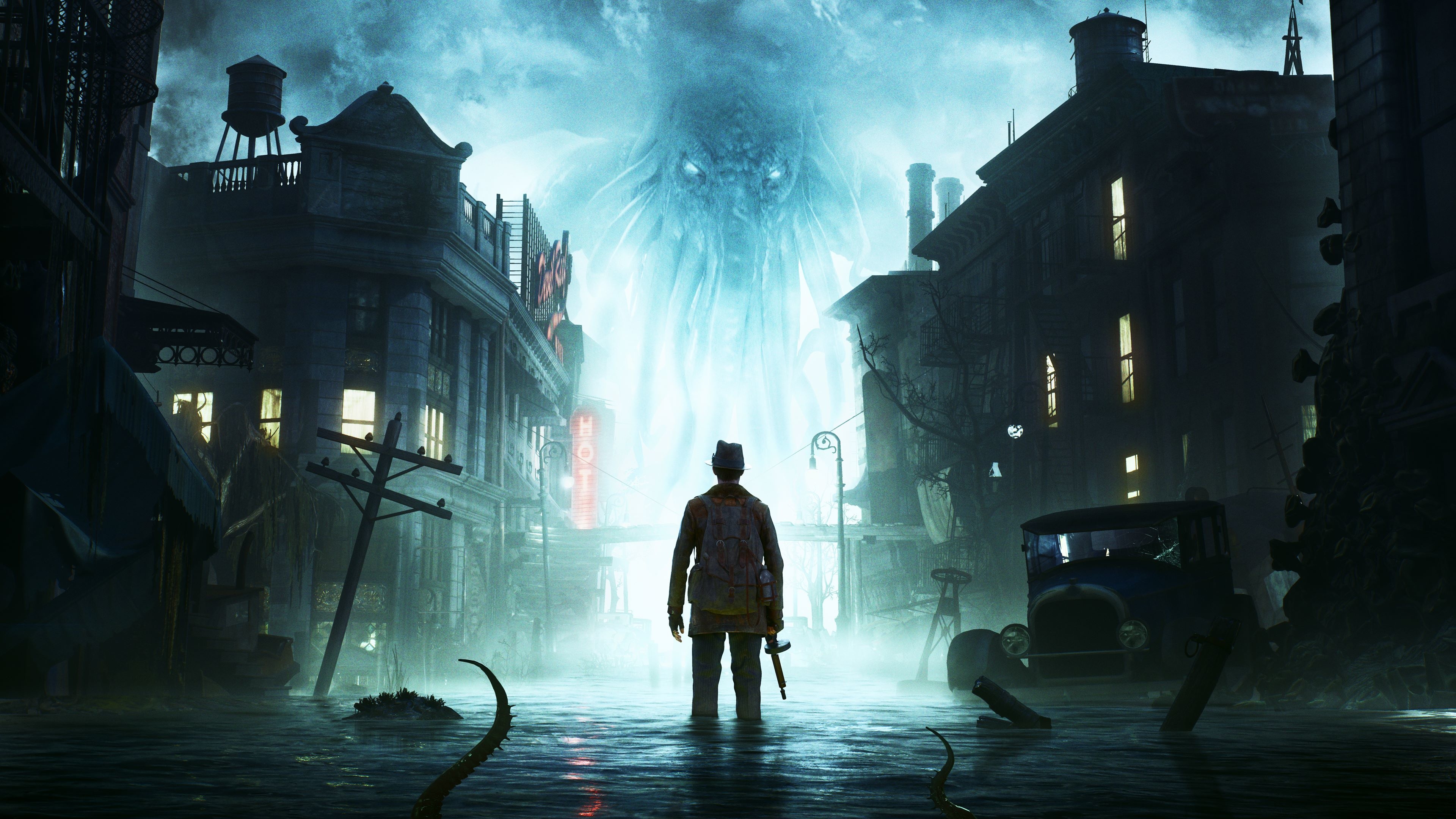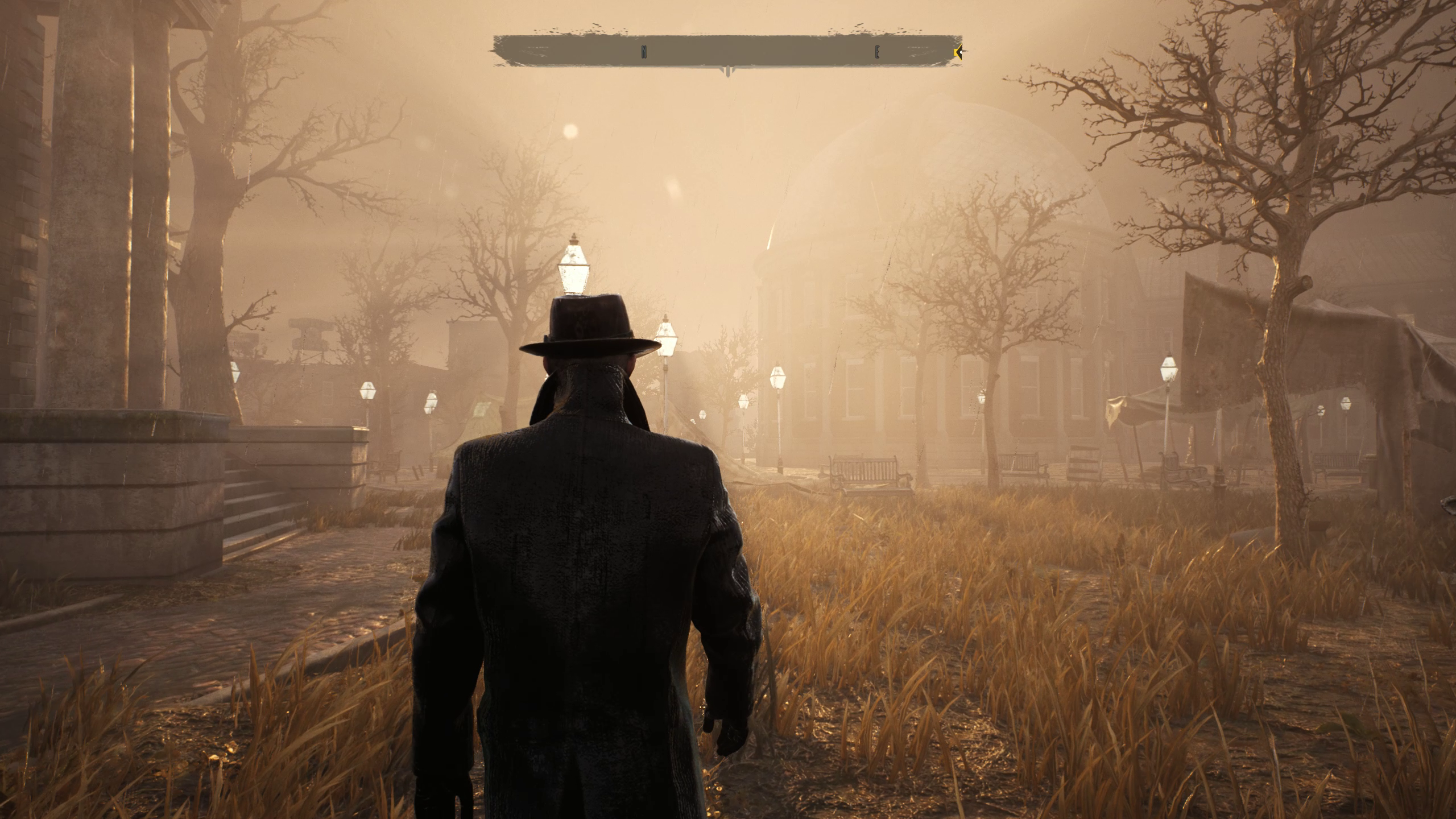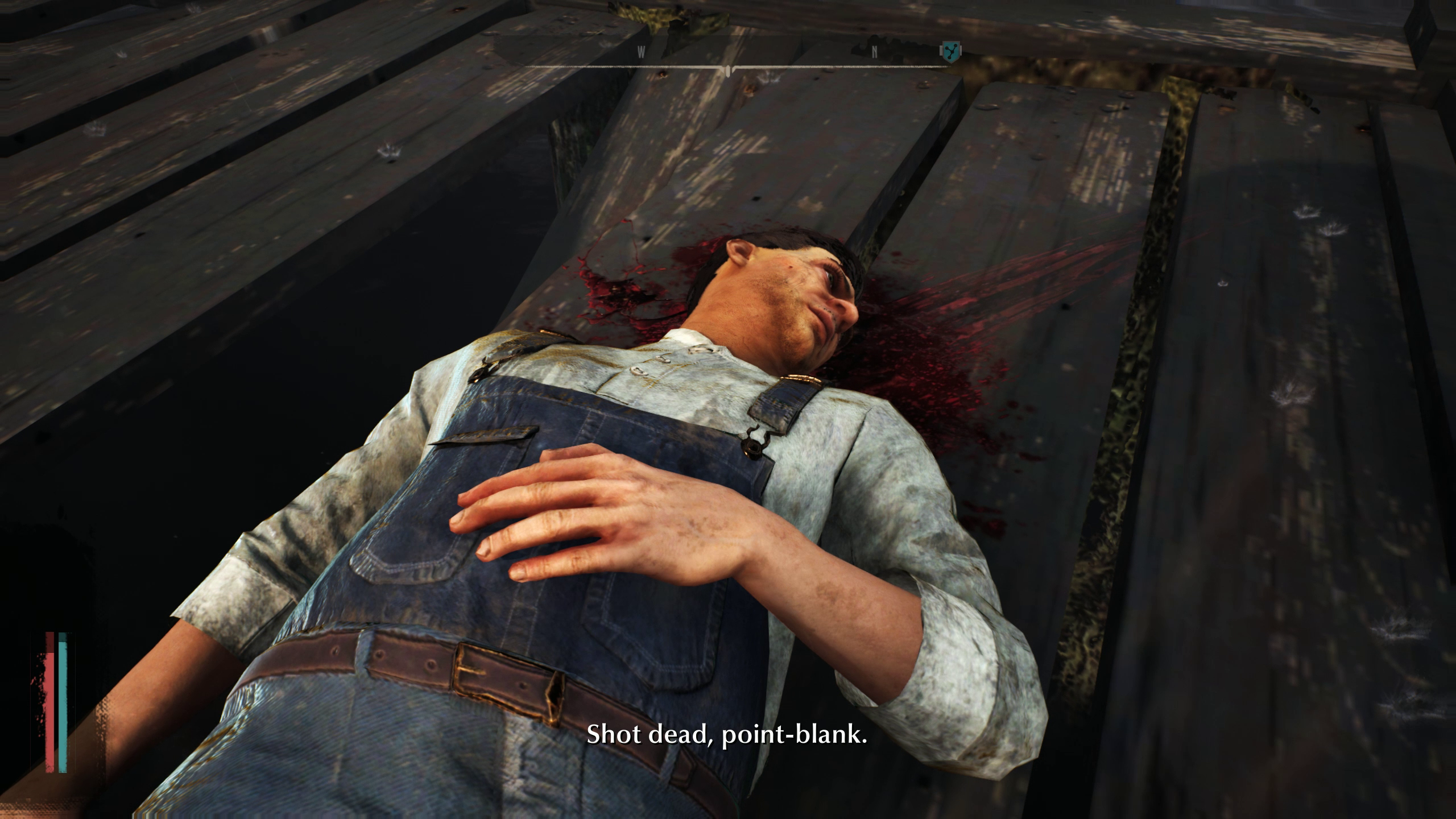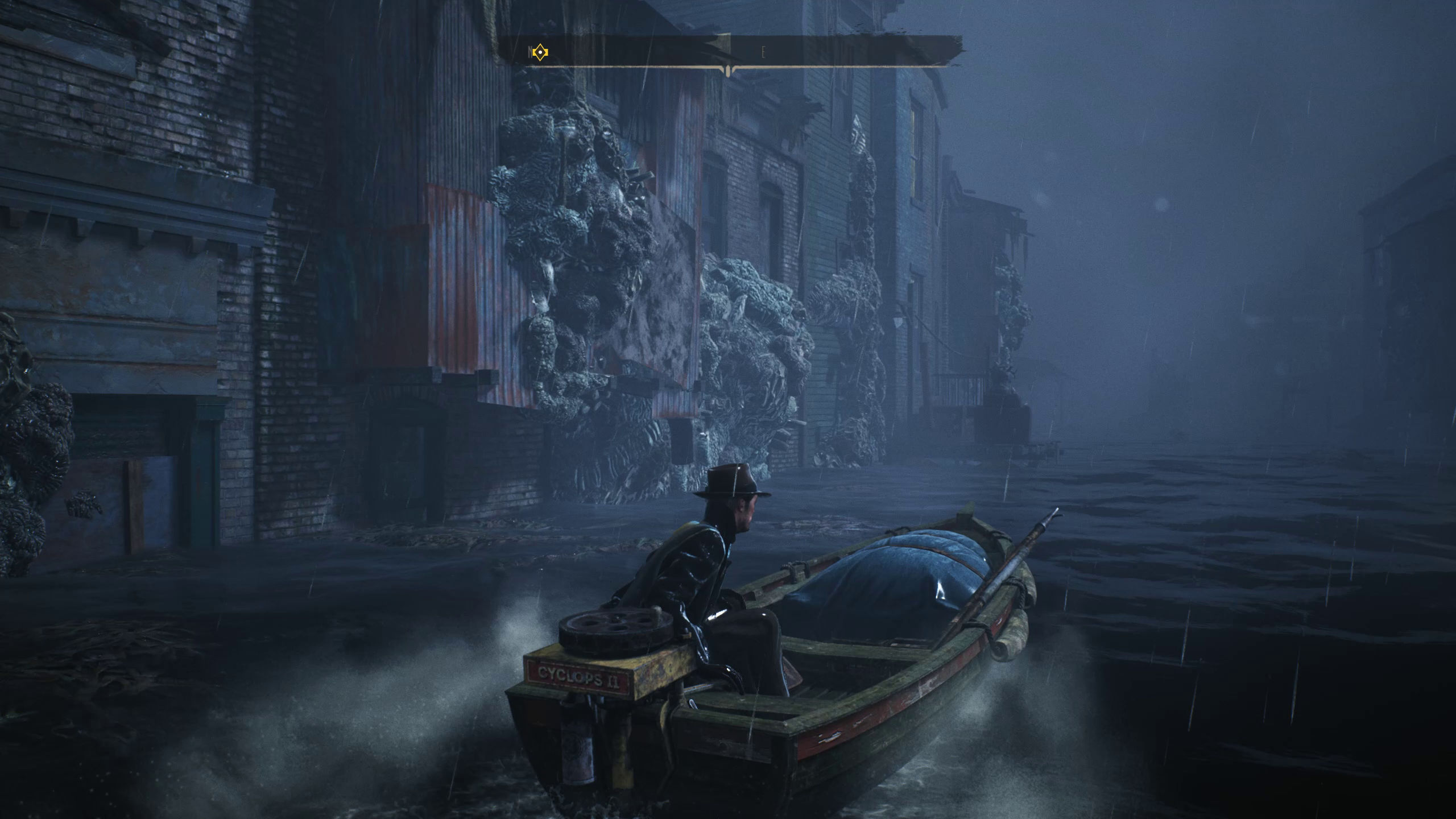Our Verdict
An occasionally entertaining detective game blighted by poor writing, rote combat, and a dreary open world.
PC Gamer's got your back
What is it? A Lovecraft-inspired detective adventure.
Expect to pay £50/$60
Developer Frogwares
Publisher Bigben Interactive
Reviewed on GTX 1080, Intel i5-6600K, 16GB RAM
Multiplayer None
Link Official Site
Buy it Epic Store
Plagued by nightmarish visions of a drowned city and a colossal tentacled beast, private detective Charles Reed travels to the waterlogged town of Oakmont to find answers. Unnatural storms have been relentlessly battering this once thriving fishing community, cutting it off from the mainland, flooding parts of it, and leaving the rest sodden and dilapidated. And to make matters worse, the eccentric locals are deeply suspicious of outsiders. But with the source of, and potential solution to, these harrowing visions lurking somewhere in the city, Reed has no choice but to get his feet wet.
The Sinking City is a third-person detective adventure set in a fictional version of 1920s New England, inspired by the works of influential (and, yes, controversial) horror writer H.P. Lovecraft. Divers uncover an ancient cavern hidden beneath Oakmont filled with otherworldly statues of cosmic demons, and are driven mad by the discovery—a madness that begins to spread through the city and awakens strange, violent creatures the locals call wylebeasts. The game is divided between solving crimes and shooting monsters, although the gulf in quality between each flavour of play is pretty wide.
Ukrainian developer Frogwares has been making Sherlock Holmes games for over a decade now, including 2014's magnificent Crimes and Punishments. As such, The Sinking City is decent detective game—particularly in its use of the blatantly Sherlock-inspired Mind Palace system. As you explore a crime scene you collect clues that, while useless on their own, can be connected in the Mind Palace to open up new lines of investigation. And you have to make these connections yourself, without any hand-holding or hints, which makes a successful deduction especially satisfying.
But while Sherlock Holmes has to rely entirely on his intelligence and intuition to solve a mystery, Reed has a supernatural advantage. In certain locations a glowing blue portal will open up, through which he can witness whichever crime transpired there. These vignettes come in the form of shimmering silhouettes of the people involved and fragments of speech. Reed must then construct a narrative, figuring out the order these echoes of the past occurred in, which will usually result in a new clue appearing in the Mind Palace.
My biggest issue with The Sinking City, at least as a detective game, is that the cases aren't that interesting. One of the greatest strengths of Frogwares' Sherlock games is encountering a confounding mystery—say, a murder occurring in a room locked from the inside—and being overcome with a desire to solve it. But I rarely felt that compulsion here, and the solutions to many of the cases lacked a satisfying "Aha!' moment—the punchline that should round off any good detective story. In leaving Holmes behind, the developer's knack for writing a solid mystery seems to have suffered. Reed is also a completely charmless protagonist, with none of Holmes' wit, quirks, or nuance. He's the worst kind of grim, gravel-voiced private dick stereotype and I really struggled to love him.
As for the over-the-shoulder gun combat, it's perfectly functional, but feels like a box being ticked rather than a vital part of the game. Bullets being Oakmont's primary form of currency (it's a long story) adds an interesting element of ammo conservation to each wylebeast encounter. But mostly I was just eager for the shooting to stop so I could resume being a detective. There's a simple crafting system in there too, letting you make health kits, ammo, and other useful items from scrap gathered in the world. But, like the combat, this is all rather rote. I feel like The Sinking City would be a better, more consistent game if it focused purely on the detecting aspect.
The Sinking City's dreary setting is also hard to love. It's an open world game, letting you freely explore the streets of Oakmont. And while I love having to follow directions and pay attention to street names to find important locations, this bleak, muddy, perpetually rain-soaked city is a thoroughly depressing space to exist in. There's some nice world-building, including districts that have been almost completely submerged, with only the tops of lamp posts poking out of the murky water. But overall the city feels disappointingly lifeless, with robotic NPCs wandering aimlessly, repetitive scenery, and a forgettable, droning soundtrack adding to the sense of gloom.
Keep up to date with the most important stories and the best deals, as picked by the PC Gamer team.
There's a good, but not great, detective game lurking here—albeit one that doesn't quite stack up with the best of Frogwares' Sherlock series. But as a package, it doesn't quite work. The open world isn't interesting enough to compel you to explore it; the combat is basic and uninspiring; and the writing and construction of the mysteries are generally quite poor. If you were looking for a unique or surprising take on Lovecraft's particular brand of horror, you won't find it here. There are some moments of quality hands-on detecting to enjoy in The Sinking City. You'll just have to decide if you can be bothered picking through the seaweed and fish guts to find them.
An occasionally entertaining detective game blighted by poor writing, rote combat, and a dreary open world.
If it’s set in space, Andy will probably write about it. He loves sci-fi, adventure games, taking screenshots, Twin Peaks, weird sims, Alien: Isolation, and anything with a good story.






